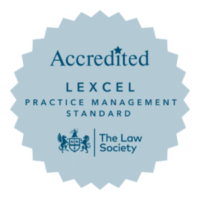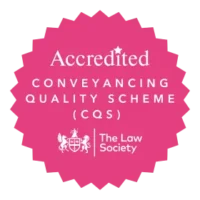Wills + Probate: “Do I need the Grant of Probate?”
29th May 2024
“Do I need the Grant of Probate?”
This is a question we are often asked at our Legal Surgery following the death of a friend or family member. The short answer is “it depends”.
What is the Grant of Probate?
The Grant of Probate is a legal order from the Probate Court and one type of Grant of Representation. The type of Grant you need depends on the particular circumstances including whether or not the deceased left a valid Will.
When a person dies the legal ownership of their assets passes to their Personal Representatives. Personal Representative is the generic term for Executors and Administrators. The Personal Representative’s authority is formally confirmed by the Grant. Being a Personal Representative is a big responsibility and not one to take on lightly. This involves collecting in the assets of the deceased, paying their debts and any taxes due and then distributing the Estate to the beneficiaries.
If you are named as the Executor in a Will you don’t have to act. In some circumstances you may choose not to, for example if the Estate is insolvent or there are difficult relationships with the beneficiaries. If a person dies without a valid Will their closest relatives may apply for the Grant of Representation as the Administrators of the Estate.
When do I need the Grant?
To answer this question you need to know what the deceased owned when they died. If the deceased owned property as joint tenants, had a joint bank account and otherwise did not own very much, you are unlikely to require the Grant. This is because joint property such as houses or bank accounts which are owned as joint tenants pass automatically by survivorship.
The Land Registry will ask for the Grant before a solely owned property may be sold. Shareholdings or business interests in a sole name or large amounts of money in an account, typically over £20,000, also require the Grant before the shares can be sold or the funds withdrawn
Most banks and financial institutions will release up to £20,000 without requiring the Grant but this is complicated by the fact each bank operates differently. Some banks and financial institutions will consider the overall size of the Estate. If the Estate is worth more than a set threshold (e.g. £25,000) the Grant may be requested even though the individual holding in their bank is relatively small.
It is important to check with each bank, financial institution or organisation holding Estate assets to understand what their requirements are. We are often able to simplify this process for our clients because we are on most high street banks’ own mortgage panels. As a result of this trusted relationship most banks are willing to transfer funds into our client account without the Grant.
Personal Representatives may also chose to apply for the Grant if they suspect someone will make a claim against the Estate under the Inheritance (Provision for Family and Dependants) Act 1975. Claims issued under this Act must be made within 6 months of the issue of the Grant. Personal Representatives may be personally liable if they distribute the Estate within this 6 month period without taking into account the possibility of a successful claim.
Do I need a solicitor to apply for Grant?
You don’t need a solicitor to apply for the Grant. You can do this yourself but applying for the Grant may be difficult if you are not familiar with the legal process. Applying for the Grant without legal guidance may also be risky because you are personally financially liable if you make any mistakes.
The question of whether or not an Estate requires the Grant can be confusing. At Thatcher + Hallam LLP we have an experienced team of expert lawyers that specialise in advising clients on Probate and Estate matters. Our Probate specialists can help you determine with certainty whether you need the Grant and guide you through the process to apply.
Do I need a solicitor to apply for Grant?
For further information or to arrange an appointment to discuss an Estate please contact our Probate Team by calling on 01761 414 646, emailing us on enquiries@th-law.co.uk or contacting us through our website.
Related news
Articles you may find useful
Like this article? Sign up for our regular newsletters






